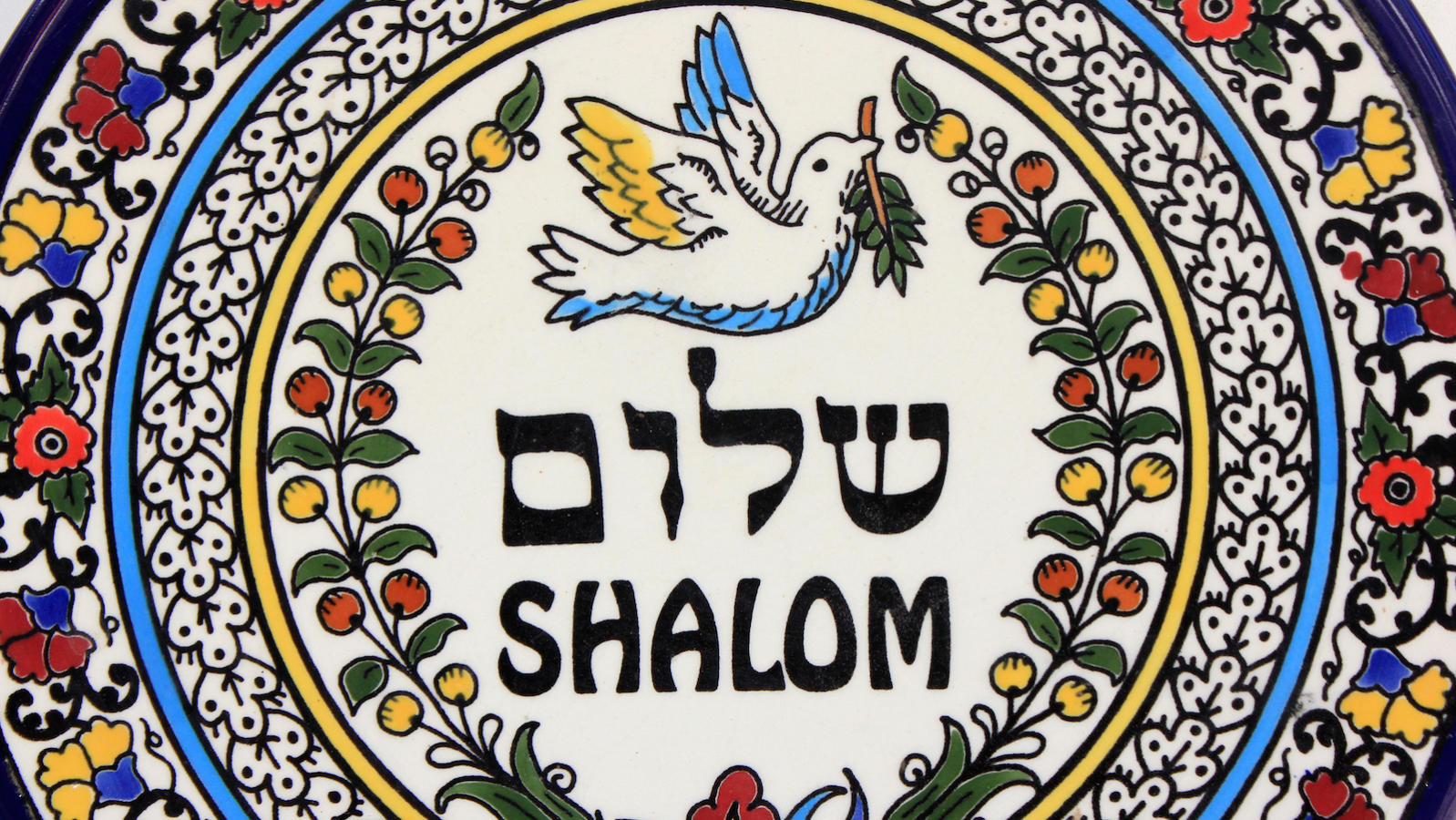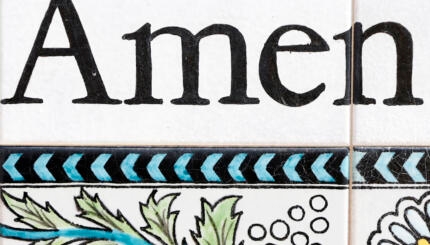Peace is one of the critical elements of Jewish prayer. Innumerable Jewish prayers and blessings feature requests for peace, which according to one ancient rabbi is by design.
Rabbi Manei of Sh’av and Rabbi Yehoshua of Sikhnin said in the name of Rabbi Levi: Great is peace, for all blessings and goodnesses and consolations that the Holy One brings upon Israel are sealed with peace. (Vayikra Rabbah 9:9)
One of the examples Rabbi Levi brings as proof of this idea is the final blessing of the Amidah, which begins and ends with a reference to God’s blessing us with peace. Indeed, this final blessing of the Amidah is a reformulation of the priestly blessing found in the Book of Numbers, in which the priests ask God to “grant you peace.” (Numbers 6:26) The Amidah blessing picks up where the verse left off, by asking God to “grant peace.”
But what does it mean to pray for peace? In interpreting the final phrase of the priestly blessing, the midrash in Sifre offers three views of what kind of peace we are praying for:
Rabbi Hanina, the assistant high-priest says: “and grant you peace” — in your house.
Rabbi Natan says: This is the peace of the Davidic kingdom, of which it is written “making leadership abound and peace without end, on the throne of David and over his kingdom.” (Isaiah 9:6)
Another explanation: This is the peace of Torah, of which it is written “God gives strength (Torah) to God’s people; God blesses His people with peace.” (Psalms 29:11)
(Sifre Bamidbar 42)
These three understandings of peace — peace in the home, political peace, and the peace of Torah — are all aspects of peace we might pray for.

Help us keep Jewish knowledge accessible to millions of people around the world.
Your donation to My Jewish Learning fuels endless journeys of Jewish discovery. With your help, My Jewish Learning can continue to provide nonstop opportunities for learning, connection and growth.
Peace at home
Rabbi Hanina claims that the peace we are requesting from God is about peace in the home — shalom bayyit in Hebrew. In fact, this is such an important value that God changed the truth in order to create peace in the home:
Great is peace: for the Holy Blessed One changed the story concerning Sarah, as it says [God reported to Avram that Sarah said]: “I am old” (Genesis 18:13).
Great is peace, that the Holy One changed (the truth) because of peace…
(Sifre Bamidbar 42)
In the Book of Genesis, we learn that when Sarah heard she was going to have a child, she laughed and thought the news impossible because her husband Abraham was too old. (Genesis 18:12) But when God reported this exchange to Abraham, God changed the report to claim that Sarah had said that it was she who was too old to bear a child (“I am old” — Genesis 18:13). The midrash understands this shift as necessary to maintain peace in the home of Abraham and Sarah, a value so important that it warranted telling Abraham an untruth.
Political Peace
Rabbi Natan offers a more political definition: The peace we pray for is the peace of the kingdom of David. Rabbi Natan quotes a verse from Isaiah that describes a political leader who is known as the “prince of peace.” This could be referring to a time when David’s kingdom returns to full power in the messianic age, a time when Jewish tradition teaches there will be no more war. But this view is not limited to a messianic timeline; it could be a prayer for current geopolitical peace, and a stable world as in the time of King David.
Peace of Torah
The final (unnamed) opinion in the midrash identifies peace as the “peace of Torah.” Commentators understand this in different ways. One understanding is peace among the different interpretations of Torah. In the same midrash, peace is later contrasted with mahloket — disagreement over how to understand a particular text. This is a view in which peace relates to the content of Torah. But others understand this request for a peace between those who study Torah — a more relational focus.
These different understandings of what peace we are praying for offer a broad range of possible meanings for the focus of this critical blessing.
This essay is adapted from the author’s forthcoming book on the Amidah.



